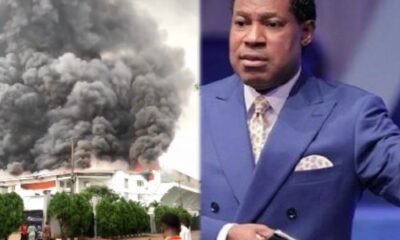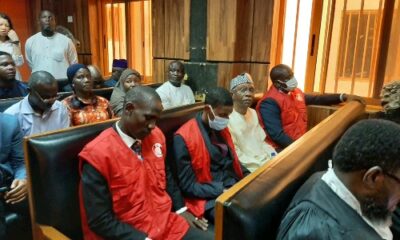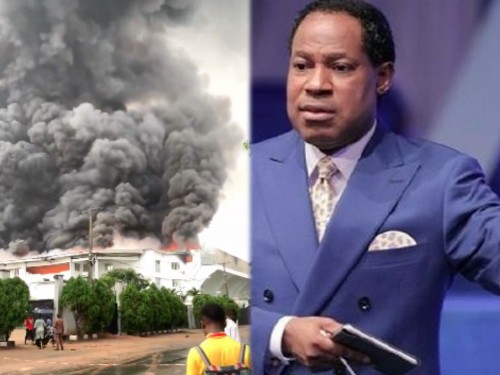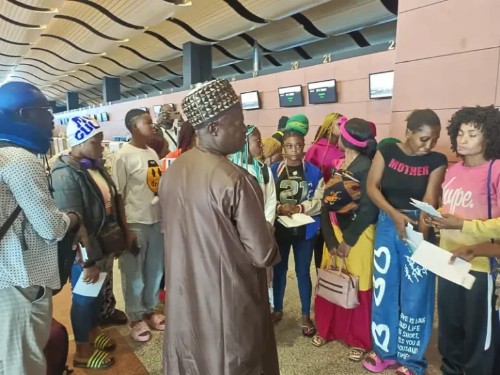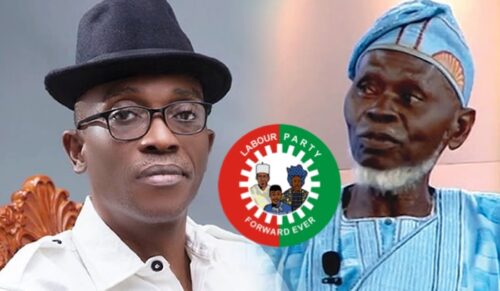- President plans low-key celebration as ministers begin sectoral briefings today
President Bola Tinubu has ordered his ministers to give their performance reports to Nigerians in honour of his first anniversary in office.
The low-key first-anniversary commemoration will be celebrated by sectoral media briefings by the 47 federal ministries beginning on Thursday (today), according to Mohammed Idris, Minister of Information and National Orientation, who made this announcement during a news conference in Abuja on Wednesday.
Senator George Akume, the Secretary to the Government of the Federation, and Abubakar Bagudu, the Minister of Budget and Economic Planning, joined Idris at the media briefing on Wednesday.
Tinubu was declared the winner of the 2023 presidential election by the Independent National Electoral Commission (INEC) Chairman, Prof. Mahmood Yakubu, on March 1, 2023.
Tinubu, the candidate of the All Progressives Congress (APC), garnered 8.7 million votes to defeat Atiku Abubakar of the Peoples Democratic Party, who came second with 6.9 million votes, while Peter Obi of the Labour Party secured 6.1 million votes.
At the opening of a three-day cabinet retreat for ministers, presidential aides, permanent secretaries and top government functionaries on November 1, 2023, the President said the ministers in his cabinet would only retain their offices based on performance, which would be reviewed quarterly.
“If you are performing, nothing to fear. If you miss the objective, we’ll review it. If no performance, you leave us. No one is an island and the buck stops on my desk,” said the President.
On January 24, 2024, the agency in charge of the assessment, the Central Delivery Coordination Unit, trained at least 140 officials to track and assess the performance of federal ministries, departments and agencies ahead of the assessment.
Speaking on Arise TV’s News Night in April, the President’s Special Adviser on Policy Coordination, Hadiza Bala-Usman, who heads the CDCU, affirmed that the unit had received performance reports from at least 20 of the 35 ministries.
She explained that the assessment report would be a product of a joint effort of the ministers, citizens and industry experts.
Bala-Usman said, “Our submission is for the first quarter. So, the first quarter has just ended, and we have initiated the assessment process. The ministers have all been asked to submit their performance based on the deliverables.”
She asserted ministers would be assessed “Based on what is out there in the public space. They would write to say, ‘Based on every deliverable you have given me, this is what I’ve done within the first quarter of the year.’
“Through the Citizens Delivery Tracker app, Nigerians will also say, ‘this is what we’ve seen the minister do’ and they would aggregate it.’’
Reports have it that the Tinubu administration has implemented significant reforms to stabilize the economy, reduce inflation, and attract foreign investments.
He ended the graft-ridden fuel subsidy regime, triggering high fuel and transportation costs, leading to food inflation and increased hardships across the country.
To curb food inflation, the government allocated substantial funds to the agricultural sector, including N200 billion to boost agricultural productivity and ensure food security.
Efforts have been made to transition from single-season farming to year-round farming through investments in irrigation and water bodies.
The administration has also provided N75b to support small and medium-sized enterprises, fostering job creation and economic diversification.
It launched a N100bn consumer credit fund to mobilize the manufacturing sector, encouraging production and enhancing economic growth.
The student loan scheme meant to open greater access to tertiary and vocational education will commence operation on Friday.
In terms of infrastructure development, the Tinubu administration has initiated a 100,000 renewable housing programme across seven states to address the housing deficit and stimulate the construction sector.
To tackle high transportation costs and promote energy efficiency, the government has directed the purchase of compressed natural gas buses.
In a move to combat security, the Federal Government allocated significant portions of the budget to national security, while supporting the clamour for state police.
Some of the administration’s reforms and efforts to stabilize and grow the Nigerian economy had received recognition from international agencies and leaders.
The Central Bank of Nigeria (CBN) introduced a slew of reforms to reign in the forex crisis.
These include unifying the multiple exchange rates to create a single, transparent exchange rate that reflects market dynamics more accurately and reduces arbitrage opportunities.
In a bid to boost the supply of foreign exchange in the market, the CBN implemented the diaspora remittances, encouraged non-oil exports by providing exporters with rebates and facilitating their access to forex at competitive rates and restricted access to forex for the importation of certain items that can be produced locally.
The CBN regularly intervenes in the forex market by selling forex to banks through various auction mechanisms.
Speaking on the first anniversary programmes, the information minister said there would be no fanfare to mark Tinubu’s one year in power.
He stated, ‘’From tomorrow (today), we are going to have ministers come in here to discuss what they are doing in their various ministries consistent with the policies of President Bola Tinubu.
“The first anniversary of the president will be on a low key, with an emphasis on sectoral briefings by the various ministers. There will be no ceremonies relating to the one year in office of the president.”
During his address, the SGF, Akume, highlighted the administration’s ambitious agenda aimed at economic revitalization, social inclusion, and infrastructural development.
Akume pointed out that significant economic reforms had been implemented to stabilise the economy and promote sustainable growth.
These policies, according to him, have successfully attracted foreign investments, reduced inflation, and boosted job creation across various sectors.
“Let me begin by admitting that the first year in office for Mr. President has been a testament to the unwavering commitment and resilience of this administration towards serving the Nigerian people with diligence, integrity, and dedication,” Akume remarked.
“Despite daunting challenges, President Tinubu has maintained his calm and demonstrated exemplary leadership qualities, guiding our nation with vision and foresight. The government has implemented significant economic reforms aimed at stabilizing our economy and fostering sustainable growth. Key among these is the introduction of policies that have attracted foreign investments, reduced inflation, and boosted job creation across various sectors,’’ he further noted.
In his presentation, the Minister of Budget and Economic Planning, Bagudu, stated that Tinubu’s administration inherited a low revenue and shrinking economy but was determined to address these challenges through the Renewed Hope Agenda.
This agenda, he added, formed from extensive reflection and input from various stakeholders, focused on eight priority areas crucial for Nigeria’s progress.
Bagudu emphasised the need for difficult decisions, noting that countries Nigeria aspires to emulate made these choices long ago, arguing that the Renewed Hope Agenda involves confronting economic realities, which may cause temporary discomfort but are essential for long-term stability and growth.
“We must restore a macroeconomic environment that can stimulate investment, generate revenue, and address under-investment in sectors like security, education, and social welfare,” Bagudu explained.
He highlighted that Nigeria’s current crude oil production is below its Organisation of Petroleum Exporting Countries quota due to under-investment in infrastructure and security.
He elaborated, “So we impact, as part of the Renewed Hope Agenda, on a macro-economic reform because that was what was responsible for low investment, low revenues and our economy’s size was shrinking, was too small compared to our needs.
“Nothing we do can solve the problem of under-investment in various sectors of the economy; be it security, be it education, be it social welfare, without restoring a macro-economic environment that can stimulate investment in our economy, which will generate revenues for us to fix security.
“That is why we are not even producing crude oil in the quantity we used to before, or as allowed by international convention, which is our OPEC quota, because of under-investment, whether in the physical infrastructure itself or security, and so on and so forth.’’
The minister stated the administration was focusing on food security by investing in irrigation and water management to enable year-round farming, noting that similar efforts were being made to revitalise the livestock sector, which has been a source of conflict rather than economic growth due to historical under-investment.
Enhancements in infrastructure, education, health, the creative economy, the digital economy, and the steel sector are also prioritized, he added.
Bagudu reasoned that some of the government policies might involve some discomfort and pain.
He argued that true leadership involves first and foremost telling the people the truth of their reality.
“Food security, despite our potential, we are under-investing. Most of our farmers are one-season-per-year farmers. So, when you have an asset that you only utilize four months in a year because you don’t have irrigation, you don’t have water bodies.
“Most of our fishing communities, they go to freshwater bodies where there’s no fish anymore, we have to transit them. The livestock sector, which in countries like New Zealand, is an important engine of growth, but in our country, due to cumulative under-investments, it has formed a basis for conflict rather than economic opportunity,’’ he lamented.
The former Kebbi State governor asserted that the President was committed to fiscal discipline, aiming to reduce the fiscal deficit from 6.11 per cent in 2023 to below 4 percent in 2024.
He also revealed that the administration planned to increase capital expenditure to 39 per cent, the highest in Nigeria’s history, stressing that the innovative N100bn consumer credit fund and mortgage fund aimed to stimulate manufacturing and housing sectors, respectively.
Bagudu further disclosed that significant budget allocations had been made to national security, leading to improvements in Borno, Imo, Kaduna, and Taraba.
Tinubu, he said, supports local government autonomy, ensuring resources are effectively used to benefit communities.
Bagudu detailed three significant budgets under Tinubu’s administration. He said the first, an N819bn budget, was renegotiated to allocate N500bn for interventions supporting vulnerable populations.
According to him, the second N2.17tn budget was focused on national security, infrastructure, and cash transfers, adding that the 2024 budget aims to restore fiscal discipline and stimulate economic growth through increased capital expenditure.
The minister said, “The three budgets Mr President participated in the first, the N819b budget which he inherited, which was even passed into law before he came, he renegotiated with the National Assembly.
“He said ‘I want N500bn to fund intervention that will support the vulnerable populations, who might be affected by the reform measures.’ About N200bn went into agriculture; N75bn into the medium and small enterprise sector, as well as N40bn into the nano-credit sector.
“Equally, another budget of N2.17tn that went to support gains in national security, most of it to security and infrastructure and also providing more money for cash transfer and meeting commitments to labour.’’
The minister pointed out that the President was clear that he would not blame his predecessor for the state of the nation.
Reeling out the benefits of the programmes and policies instituted by the government, he said, “So, we believe that with consumer credit mobilizing the manufacturing sector; with mortgages re-energizing the houses sector; with Agriculture Development Fund mobilizing the agricultural sector, our youth and our productive economy will be mobilised.’’
The minister said the N130bn provided for the transition to CNG (compressed natural gas) would restore energy competitiveness and benefit the manufacturing and transport sectors of the economy while the cheaper energy would support economic reforms.
Credit: The Punch
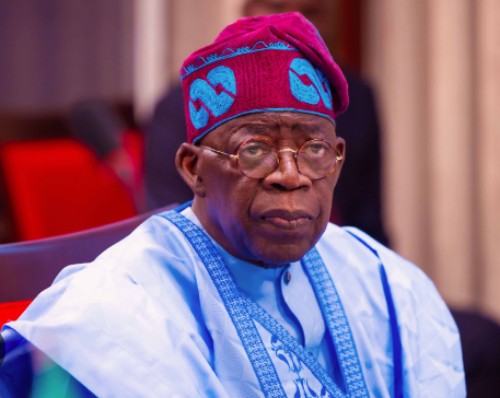

 BIG STORY2 days ago
BIG STORY2 days ago
 BIG STORY3 days ago
BIG STORY3 days ago
 BIG STORY1 day ago
BIG STORY1 day ago
 BIG STORY11 hours ago
BIG STORY11 hours ago
 BIG STORY4 days ago
BIG STORY4 days ago
 BIG STORY4 days ago
BIG STORY4 days ago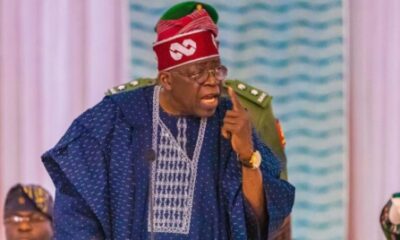
 BIG STORY10 hours ago
BIG STORY10 hours ago
 BIG STORY3 days ago
BIG STORY3 days ago





